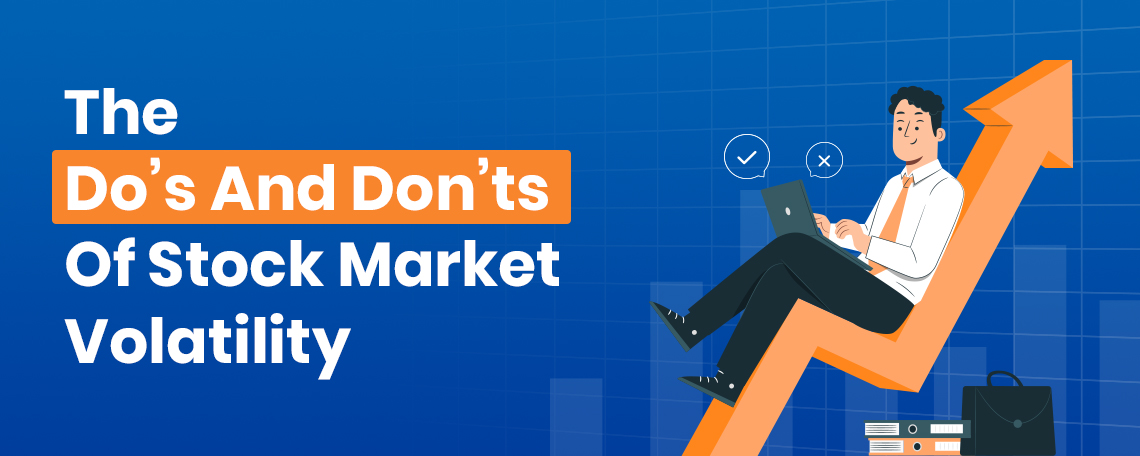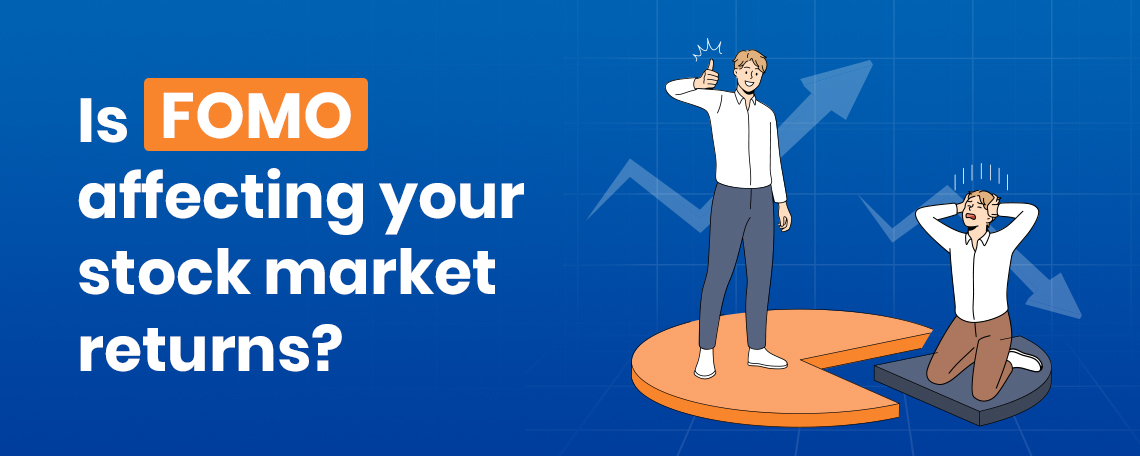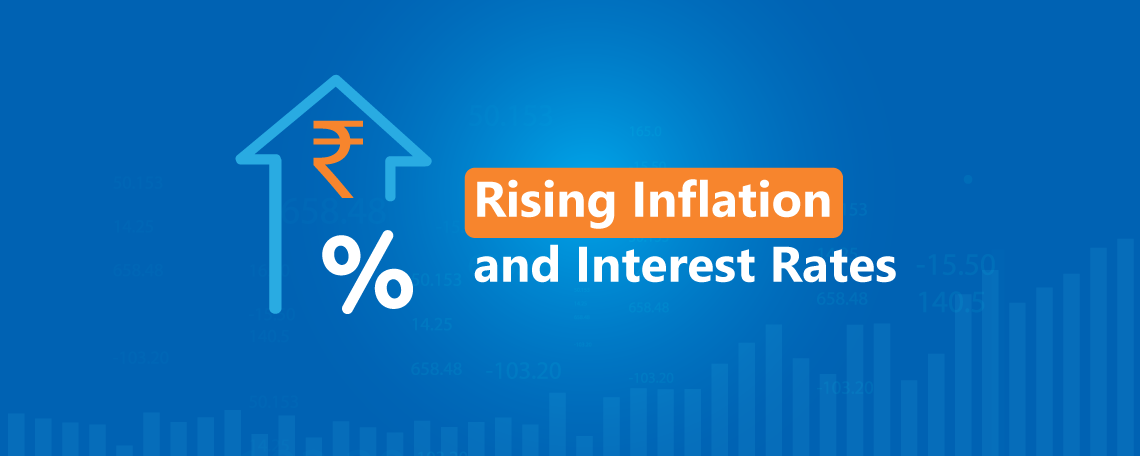The Do’s And Don’ts
Of Stock Market Volatility
October 01, 2022

Nifty finally ended the 7-day losing streak on Friday. However, this range-bound & volatile behaviour is not new. The past few quarters have evidently been rather choppy for the equity markets worldwide owing to various global factors. One cannot deny that the global economy is slowing down. The US, Europe and China are all facing formidable headwinds.
- The Russo-Ukraine war followed by the American sanctions on Russia have had global consequences. It has affected the crude oil prices & has led to an unprecedented energy crisis in Europe.
- The likelihood of the US slipping into recession is quite high due to the constant interest rate hikes by the FED & the subsequent economic slowdown.
- China on the other hand is struggling under a deepening property market crisis and the widespread Covid-related lockdowns.
All this can cause many investors to want to “do something” in response. But that’s exactly the problem. Doing ‘something’ often means making changes in your investment portfolio that can hurt your long-term return potential. It means making mistakes at just the wrong times.
Making rash, emotion driven investment decisions are best avoided at all times. And especially now, when the 11-nation Euro Stoxx 50 is down by 24.6 percent from the peak and the Nifty is down by only 8.5 per cent from its peak. Similarly, While the Dow has gone below the pre-pandemic high, the Sensex is 36 per cent higher than the pre-pandemic January high. This is a distinct outperformance that is driven by India’s growth and earnings outperformance. If you want to benefit from India’s growth story, then it is important that you don’t let your emotions get in the way and handle this phase of volatity the right way.
Here are some DOs & DON’Ts when it comes to stock market volatility. Let’s start with the DOs:
1. Remember How Common Stock Market Volatility Actually Is
Volatility is a normal & natural feature of investing in the equity markets. For instance, the Sensex has generated approximately +15% in annualized returns. This long-term annualized return of +15% includes market crashes, deep recessions and big bear markets.
Therefore, Equity investors should expect at least one correction every year. This will mentally prepare you and can help you make smart decisions in volatile periods.
2. Review Your Asset Allocation
While volatility cannot be fully avoided, it can surely be controlled. Ask yourself this simple question: is your current portfolio adequately diversified across asset class, style, size, and region? Not only can diversification reduce risk and potentially temper volatility in your investment portfolio, but it can also boost returns.
Hence, we recommend that you build a diversified portfolio across all spectrums: small-cap, mid-cap, large-cap, and multi-cap, with coverage across various industries & sectors.
3. Talk to Your Investment Advisor
Remember that volatility works both ways. In addition to the dreaded downside volatility, there are also the much-desired upside swings. Missing these upside swing is one of the primary reasons an average investor tends to underperform over time. Investors too often tend to get in their own way, making emotional decisions at just the wrong times.
Your Investment advisor can provide insights into what’s going on in the markets and what the outlook for your stocks is over the next year or two. They might also be able to find some hidden gems trading at attractive valuations for you.
Now let us have a look at the mistakes that you shoud avoid making when the markets are volatile:
1. Don’t Make Knee-Jerk Decisions
Market declines and market lows often result in emotional decision-making. Investors rationalize that selling out of stocks is the surest way to avoid incurring further losses, but selling in many cases just locks those losses in. The reality is that in the depths of market declines and market lows, the investor’s smartest move is usually to hold onto stocks or to even buy more.
Investors that get pulled into trying to time the market often miss out on some of the big up days, which can negatively impact long-term results.
2. Don’t Let Emotions Influence Your Thinking
We understand that it is easier said than done. It’s natural to feel worried or scared in uncertain times and overconfident or even greedy when markets are soaring. However, Emotions often cause us to the do the opposite of what we should. History has showed us that the market’s best days often happen in close proximity to the market’s worst days, and being out of the market can cost investors dearly.
The most successful investors are often the ones who manage to separate emotions completely from their investment decision-making process.
3. Don’t Watch Too Much Financial News
This ‘don’t’ is related to point number 2 of not letting emotions get in your way. Financial news media is essentially designed to evoke an emotional response from viewers. Hence, the more time you spend watching it, the higher the likelihood that it will lead to decision based on an emotional response – a bad outcome.
Widely known information rarely has any pricing power. If you are seeing a story online or on TV, then remember that the news is likely already priced into the stocks.
See How StockAxis Can Help You Manage Volatility:
- Experience – Our Analysts have over 50 years of combined experience in capital markets analysis and wealth management.
- Research – Thousands of subscribers use StockAxis Research’s products and platforms. This coveted research fuels our investment decision-making process and sets us apart.
- Relationships – your relationship manager will be there to resolve your queries, and respond to your needs.
Take Charge of Your Financial Future and Let Us Work to Make It Better. StockAxis has been in business and growing since 2014. We may have just the type of result-driven experience that you need and deserve.
Let us show you who we are and how we can work with you and for you. There is no cost to learning more about our strategies and our approach. We are happy to take the time to answer your questions and tell you more about what we do.


















 Continue with Google
Continue with Google